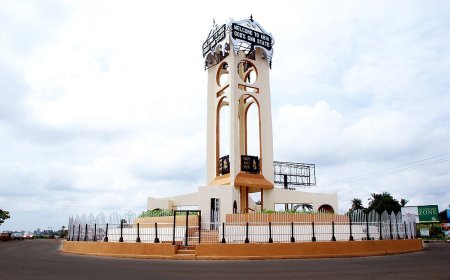Nationwide Blackout as National Grid Collapses Yet Again

Millions of Nigerians were left in darkness on Friday, March 7, 2025, following yet another collapse of the national power grid. The outage affected major cities, including Lagos, Abuja, and Port Harcourt, disrupting businesses and essential services across the country.
The latest grid failure comes just days after the federal government announced a historic rise in power generation to 6,000MW. However, by 2 PM, a sudden grid disturbance caused generation levels to plummet from around 4,000MW to below 1,000MW, crippling electricity supply nationwide.
At its highest point on Friday morning, power generation stood at 5,284MW. But by 4 PM, only 803MW was available, with several power plants yet to resume operation.
The Ikeja Electricity Distribution Company (IKEDC) confirmed the system collapse in a statement to its customers:
"Dear esteemed customer, please be informed that we experienced a system outage today, 07/03/2025, at 14:00hrs, affecting supply within our network."
IKEDC assured customers that restoration efforts were ongoing in collaboration with key stakeholders.
The national grid collapse has become a recurring issue, with multiple failures recorded in 2024 and early 2025. Experts have repeatedly pointed to poor infrastructure, inadequate maintenance, and insufficient investment in the power sector as major causes of these frequent blackouts.
Despite government assurances, the power supply situation remains unstable, significantly affecting industries, businesses, and households. Many Nigerians have resorted to alternative energy sources such as generators, solar power, and inverters to cope with the unreliable grid system.
The Transmission Company of Nigeria (TCN) and power distribution companies are reportedly working to restore normal operations. However, there has been no official timeline for when full power supply will be reinstated.
As the country continues to grapple with repeated power failures, there are increasing calls for urgent reforms in the energy sector to prevent further disruptions and ensure stable electricity supply.






















































